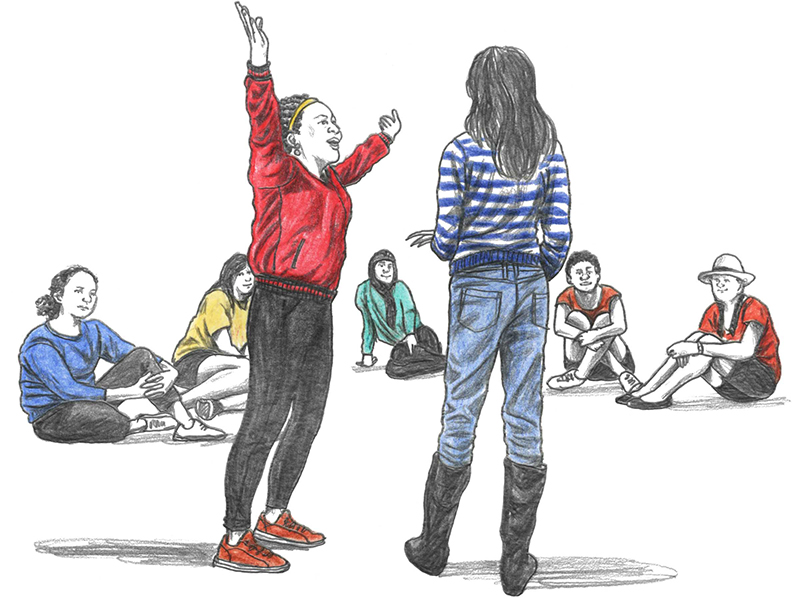Improv comedy is fun to watch – and difficult to do. But simply trying it could have valuable therapeutic effects for marginalized women, according to new research by Stephanie Begun, an assistant professor at the Factor-Inwentash Faculty of Social Work. Begun teamed up with Daphney Joseph, a performer from The Second City comedy-theatre troupe in Toronto, to run online improv classes with racialized young women last year. They also held an in-person workshop with women experiencing homelessness. Based on interviews with the participants following these events, Begun found that doing improv boosted their self-esteem in three ways.
Improv relies on the “Yes, and…” philosophy, which means always agreeing with and adding to someone’s idea. This creates an environment where people feel safe to take risks. “I didn’t think I would be very good at this, but I surprised myself,” said one participant. Said another: “I think improv is extra-good for young women, as we struggle with self-esteem.”
Improv is also an equalizer, Begun says. “No one has an advantage – no matter your education or place in the world. The women said that seeing me jump in and join the activities meant a lot because improv was clearly just as new and unknown to me as it was for them.”
The participants said the workshops created new social connections and provided a much-needed injection of fun and humour in their lives. “It got me right out of my head and out of all my anxiety and all my worries,” said one participant. Begun notes: “It seems that these experiences lead to meaningful realizations in nearly anyone who gives improv a try.”
Recent Posts
People Worry That AI Will Replace Workers. But It Could Make Some More Productive
These scholars say artificial intelligence could help reduce income inequality
A Sentinel for Global Health
AI is promising a better – and faster – way to monitor the world for emerging medical threats
The Age of Deception
AI is generating a disinformation arms race. The window to stop it may be closing





